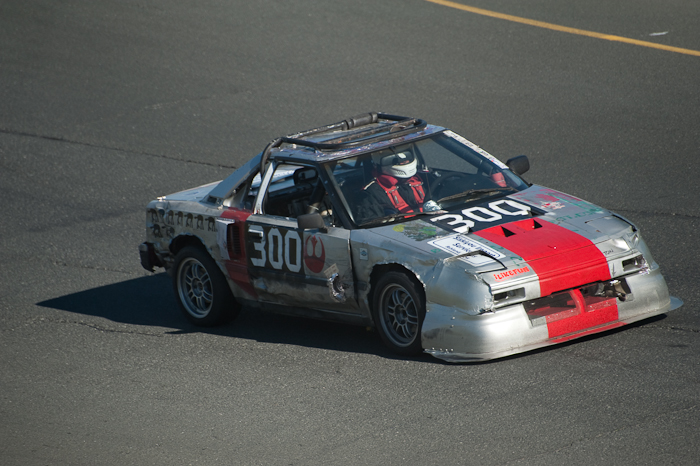Nearly unanimously the first question out of anyone after their eyes refocused when they heard about our double engine Corolla/MR2 project: “How will you synch the engines?” I heard this question so often, from the mechanical genius and inept alike, that I started to question whether the project was feasible. When I explained our theory, that synching would not be necessary since the systems would be completely independent like two coupled locomotives, they usually said “I guess that might work” with their mouth, and “you’re a batshit-crazy moron” with their facial expression.

A few would pursue the subject a little further and explain how if the engines were not synched they would contend with each other and drive the wheels at different speeds and chew up tires and put undue torque on drivetrain components and blah blah blah. As near as I could tell they expected our car to suffer the same problems manifest in a 4 wheel drive vehicle, with locked differentials front, rear, and center, doing 15’ radius turns on pavement.
My answer would be that any car has an endless array of forces operating for and against drive train: Going up hills, going down hills, head winds, tail winds cross winds, various load mass, collisions... Being welded to another car moving the same direction is just another external force on the first drive train. As far as one engine can tell, the combination of forward forces is no different than driving downhill.
My favorite is the people who speak with the authority of someone who just the other day was driving their own twin engine car and the axles snapped off on their way to work.
An endurance race proven example has been built and demonstrated. It works great. It ran hard all day. I personally flogged it. Not even an unexpected level of tire wear. If you want to build one that doesn't work just to prove us wrong, go nuts.








No comments:
Post a Comment